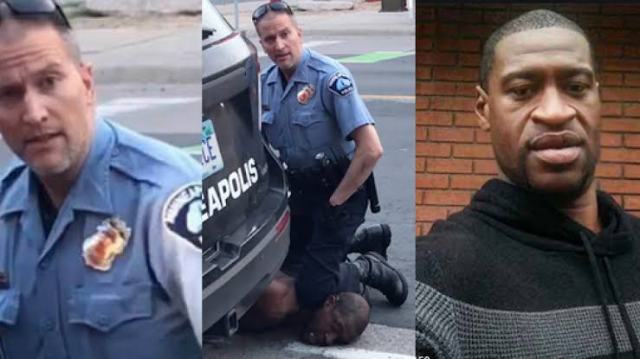Kole Omotoso
And the world and its black problem. And the world and its colour problem. The world and its problems. How else do you speak of the problems of the future except in the words of the past? For the apartheid government of South Africa, they had a black problem. How do you solve a problem like living and vibrant people?
If the way forward is the democratic way, the future belongs to the majority of people of the world who are not white. So, for over 100 years, the white rulers of the United States of America have perfected ways of ensuring that African-Americans cannot use their voting rights.
If you have ever had any encounter with the police you cannot. If you have been in police custody, you cannot vote. If you have been in prison forget about voting. So, the American justice system ensures that as many African Americans are sent to jail for the flimsiest reason! What would be resolved with a gentle advice for a white citizen would lead to death or jail for a black counterpart.
Out of blind greed and utter idiocy of what the future is about, whites drove black people from their land not caring what happens to them. And what happens becomes the living history of the displaced people. The black problem appears. The whites try to find a solution to their black problem. Except that they are not problems. They are human beings looking for space to breathe. In South Africa and in the Unite States of America, life was made as difficult as possible for black people. Shoot some but you do not shoot all. Imprison some but there are no prisons for all of you, you the jailer included. In fact, in a contradictory manner, the affliction of black people leaves its evil effects on those sent to go and make life impossible for black people.
Missionaries carry out their own appeasement. “Be not anxious what ye shall eat, or wherewithal ye shall be clothed…” “The Egyptians whom thou has see today, ye shall see them no more. The Lord shall fight for thee and thou shall keep thy peace.”
Such consolation did not work, especially because the rulers and grandees of the apartheid and Jim Crow world were busy piling treasures on earth against the advice of the high priest. The church is forced to become part of their congregation joining in demonstrating against the white system.
The palliative of change will come as long as we are patient. Look at it this way. Rome was not built in a day. That argument also ran out of steam. Because those who would not give up continued to fight for space to breathe. These were the ones who forced concessions from the government. They are the ones who picked up guns and were ready to fight to get what belonged to them back. They declared that they would take up arms and fight for their rights. From that point on, the loads shift! The black problem takes on a different colouring and both sides begin to speak of cooperation and what is possible.
The insistence on democracy would always be difficult to argue for or against. Both sides swear by democracy. The apartheid government held democratic elections as at and when it is due. And those who won got their democratic rewards. At the same time, this was an inadequate democracy where 90 per cent of the population of the country could not participate and make a difference to how they were governed. That could not be called a democracy. Yes, agreed the practitioners of this limited democracy with the addition that democracy is not a destination but journey.
There follows a period of negotiation, a period of horse trading, followed by a truth and reconciliation where little truth was told and no reconciliation was possible. But the country went on. A democratic constitution with human rights guaranteed and the rule of law affirmed would assure all citizens, black and white alike, would be protected.
The questions that needed to be asked could not be asked. People were not democratically enslaved and brought to work in the plantations of the Americas. The land was not democratically taken away from black people of South Africa. How then would the New Democratic constitution correct the wrongs of the past with all its law and order? In South Africa, there was enshrined in the constitution respect for property rights. In the face of such property rights, there was no possibility of change. For one important reason that those who own those properties today are not the ones who stole it from the original owners. Sunset clauses placated some officers whose futures were over. The new comers couldn’t wait. Elections were held and the majority black people had the government of the black people by black peoples for black people.
The first democratic election was in April 27, 1994. There followed the next democratic election and the next and the next… There was no satisfaction. Twenty years on, six or seven democratic elections behind us nothing had changed. Whites still retained most of the riches of the land. The apartheid town and city planning still spoke to the unchanging legacy of apartheid.
There was now a white problem. But for the whites life would be better for black people. White people are the targets of crime. White people are the targets of farm murders and brutal violence.
In fact, white people of South Africa have taken their case to the United Nations Organization asking for protection as a minority natives of South Africa.
So, the present problem is spoken of in the language of the past. The language of the past was not able to resolve the problem of the past. No new vision provided for the legacy of dispossession. Without the possibility of a new way of looking at dispossession and reparation, nothing will change. And already there are black people who don’t see any future in voting! And therein lies the pain of the struggle that swallowed the lives of thousands. How can future problem be simply our colourless problems?






























































